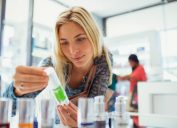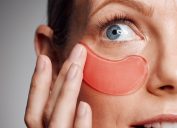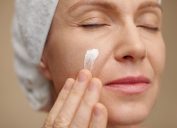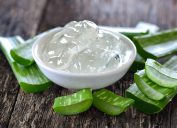Understanding Rosacea: 10 Natural Ways to Soothe and Calm Red, Irritated Skin
Tame your rosacea symptoms with these expert-approved tips.

Rosacea is an inflammatory skin condition that can cause a range of uncomfortable symptoms. Many people who suffer from rosacea will experience flare-ups of skin irritation and sensitivity, which can be painful, itchy, or produce a burning sensation.
"As an esthetician and acne specialist, rosacea is a common skin condition that I treat daily," says Brie Cure, owner of Brie Cure Aesthetics. "It typically manifests as centralized redness, often around the nose and cheeks, and can include acne-like bumps," she explains, noting that there are four main types of rosacea: erythematotelangiectatic, papulopustular, ocular, and rhinophyma.
Rosacea can be the result of both underlying pathologies and environmental triggers. "External factors contributing to rosacea include sun exposure, temperature extremes, wind and weather conditions, hot beverages, and fragranced skincare products," Cure explains. "Internal factors such as genetics, immune system dysfunction, vascular abnormalities, demodex mites, dysfunctional skin barrier, and neurovascular dysregulation also play a role."
In part due to its various causes, there are also various ways to soothe symptoms. Wondering how to get rid of rosacea permanently? These are the 10 best ways to calm your red and irritated skin, according to top estheticians.
RELATED: Never Buy Skincare Products With These 5 Ingredients, Dermatologists Warn.
1
Know and avoid your triggers.
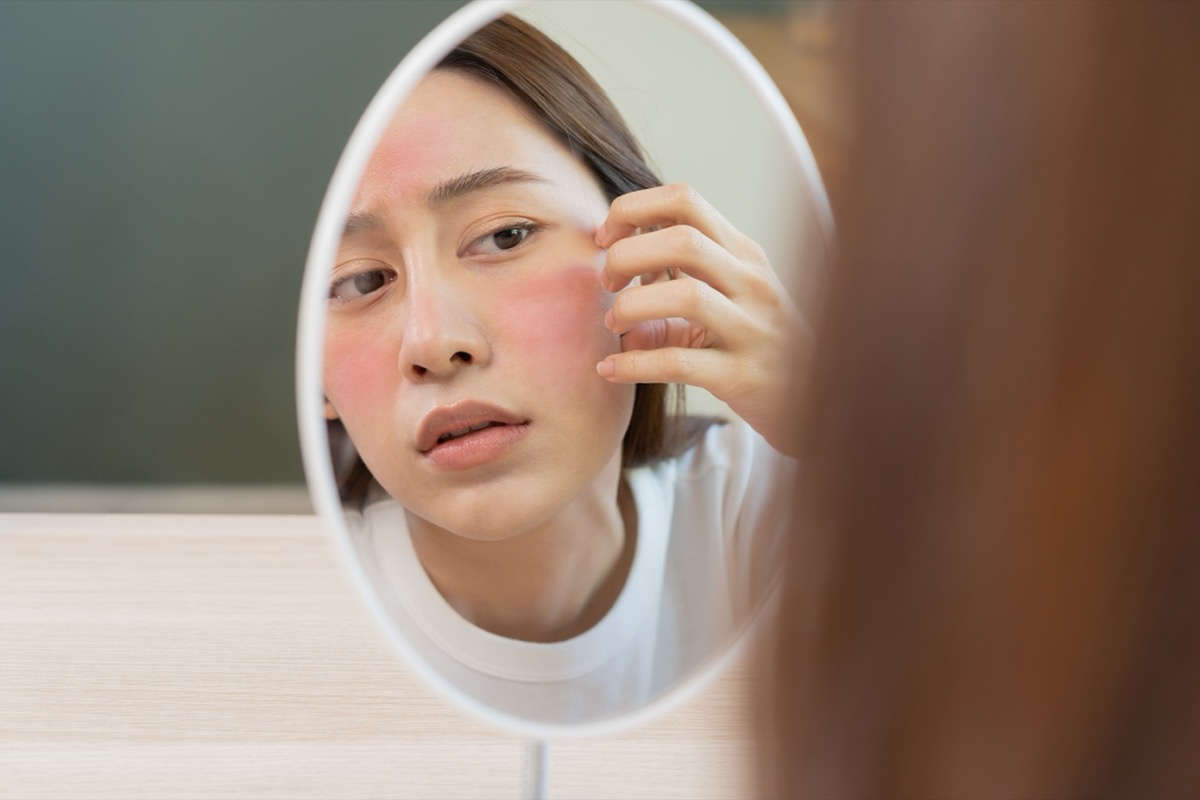
Identifying and avoiding your rosacea triggers can help keep flare-ups at bay. Cure notes that "spicy foods, hot beverages, alcohol, and extreme temperatures" are some of the most common culprits she sees in the clients she works with.
Keeping a diary to track your triggers is one way to help you recognize and remember them, says Nichelle Temple, celebrity esthetician and founder of Inderma Studio.
"Keep track of activities, workouts, saunas, stress levels, and your travels as certain environmental factors can exacerbate symptoms," she tells Best Life, adding that food journaling can also help you identify nutritional triggers and inform your plan for diet modification if needed.
2
Try mineral sunscreen.
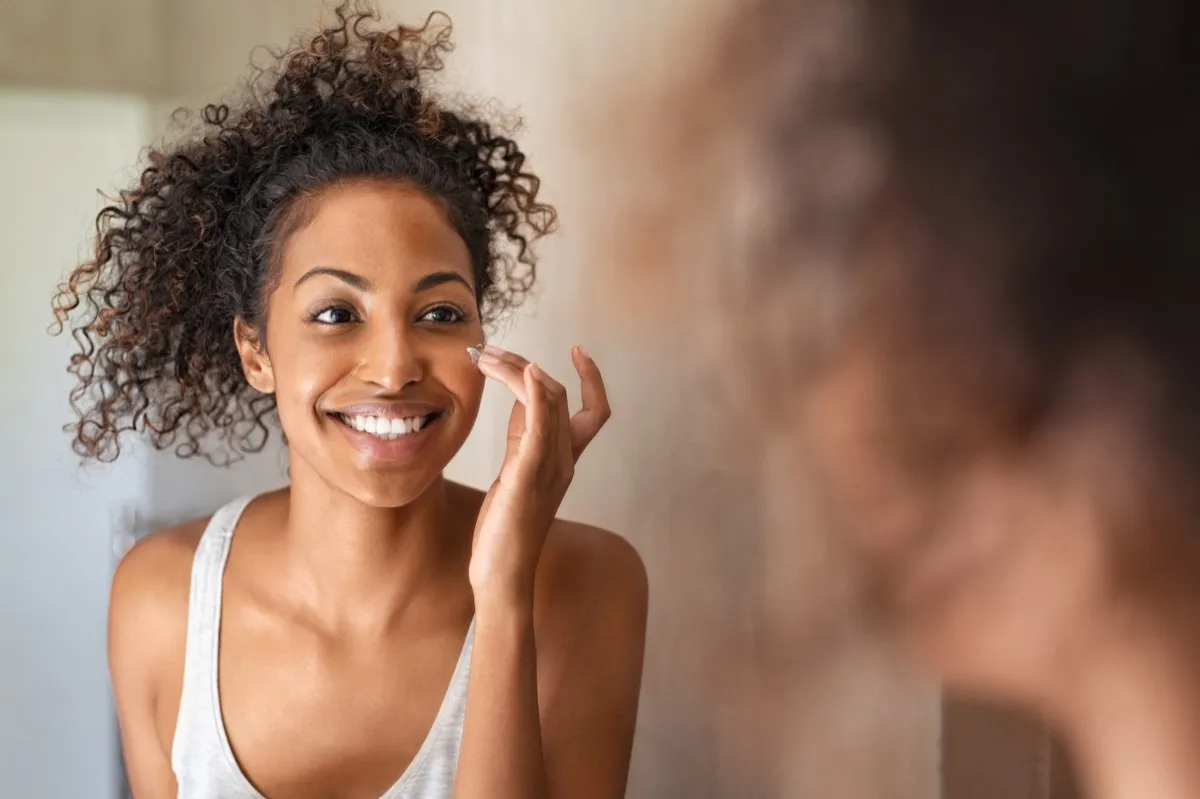
Even if you don't have rosacea, you should still use daily sunscreen, reapplying every two to three hours. Paul Charette, master aesthetician and founder of Charette Cosmetics, notes that this comes with multiple benefits, including shielding you from sunburn, preventing premature aging, lowering your risk of skin cancer, reducing blotchiness on the face, and enhancing skin health.
This is an especially important habit for anyone who suffers from red, irritated skin from rosacea.
"Apply a mineral sunscreen with SPF 30 or higher daily to protect your skin from UV radiation, a common trigger for rosacea flare-ups," suggests Cure. She adds that for her own clients with rosacea, she typically recommends CeraVe Hydrating Mineral Sunscreen with SPF 30.
RELATED: Dermatologists Share the Best Drugstore Skincare Products: "Anything More Is Not Necessary."
3
Choose the right skincare ingredients.
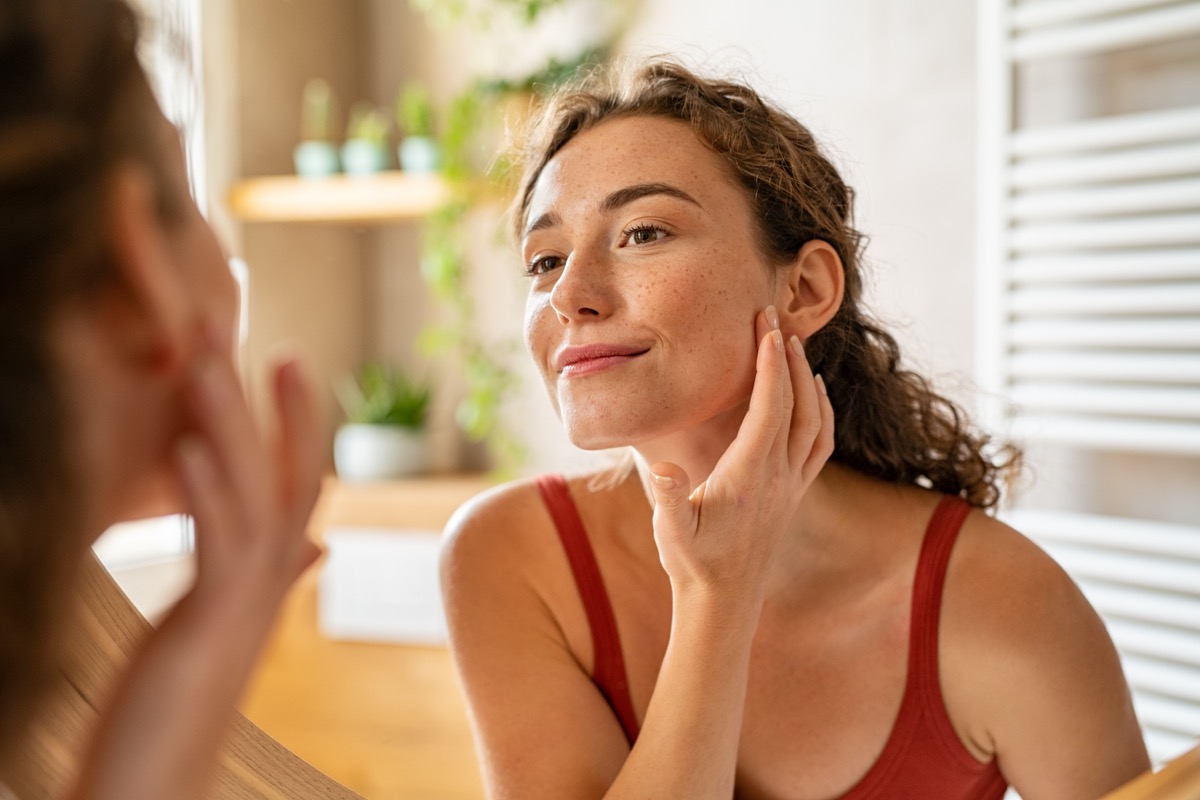
What you put on your skin can greatly impact the severity of your rosacea.
"Choose skincare products containing ingredients like azelaic acid, metronidazole, or sulfur to reduce redness and inflammation associated with rosacea," advises Cure.
Her favorite product to recommend for rosacea is the Sulfur Spot Treatment from Face Reality. "It has six percent sulfur and an innovative peptide that provides an instant fix for red and inflamed acne lesions," she notes.
Cosmetic chemist and celebrity aesthetician Elina Fedotova, who is also the founder of Elina Organics & Spas, says there are two other ingredients she typically recommends for those struggling with rosacea: niacinamide (vitamin B3) and seawater pearl powder.
"Niacinamide reduces redness by calming inflammation and irritation caused by acne or rosacea, minimizes large pores, repairs sun damage and helps rebuild skin cells, and protects skin from environmental stressors," she tells Best Life.
She adds that seawater pearl powder—rich in amino acids and beneficial trace minerals—brightens, soothes, and smooths. "Its antimicrobial properties reduce acne, scars, and rosacea," she notes.
4
…And nix the wrong ones.
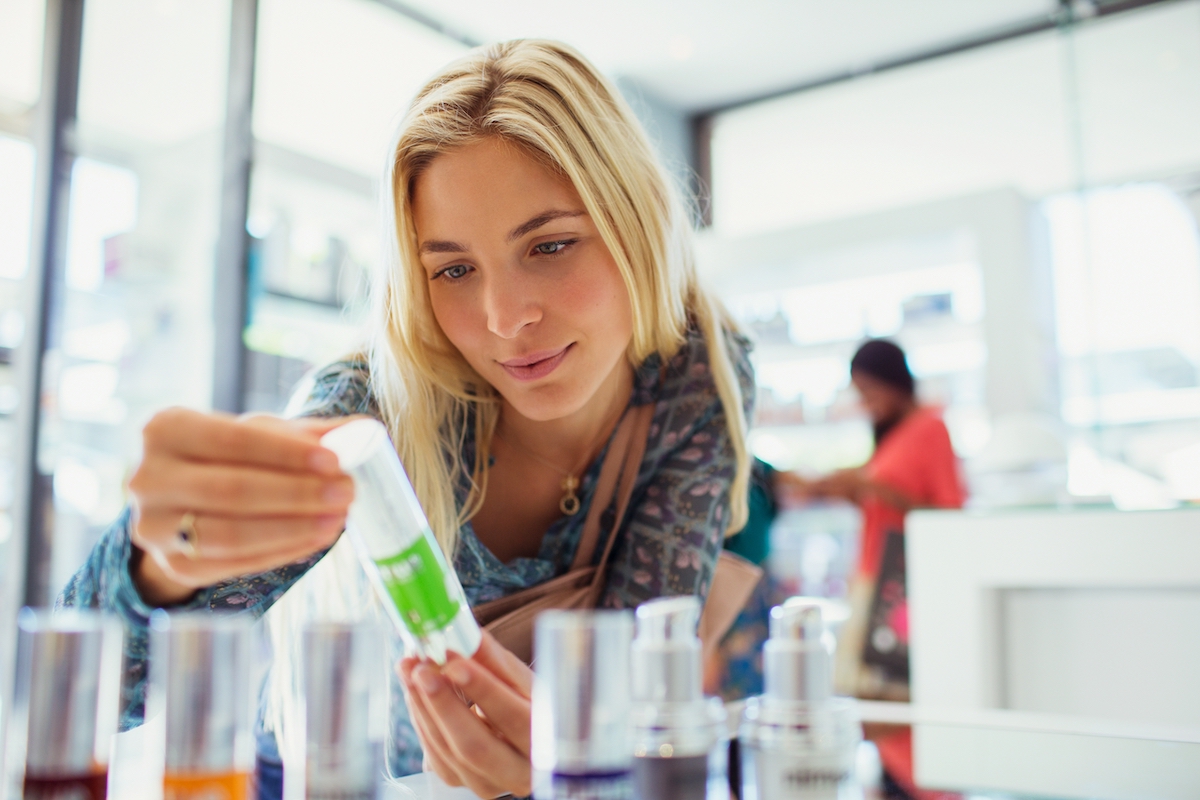
Equally important are the ingredients you avoid in your skincare products.
"Steer clear of skincare products containing alcohol, fragrance, menthol, or exfoliating acids that can exacerbate rosacea symptoms," says Charette.
Instead, look for products—including cleansers, moisturizers, sunscreens, serums—that are labeled as fragrance-free, hypoallergenic, and non-comedogenic (meaning they won't clog your pores). Skin-testing your products on a small area of the skin before applying them more broadly can help you avoid a problem.
RELATED: 10 French Skincare Secrets That Will Make You Look Years Younger, Experts Say.
5
Add topical antioxidants.
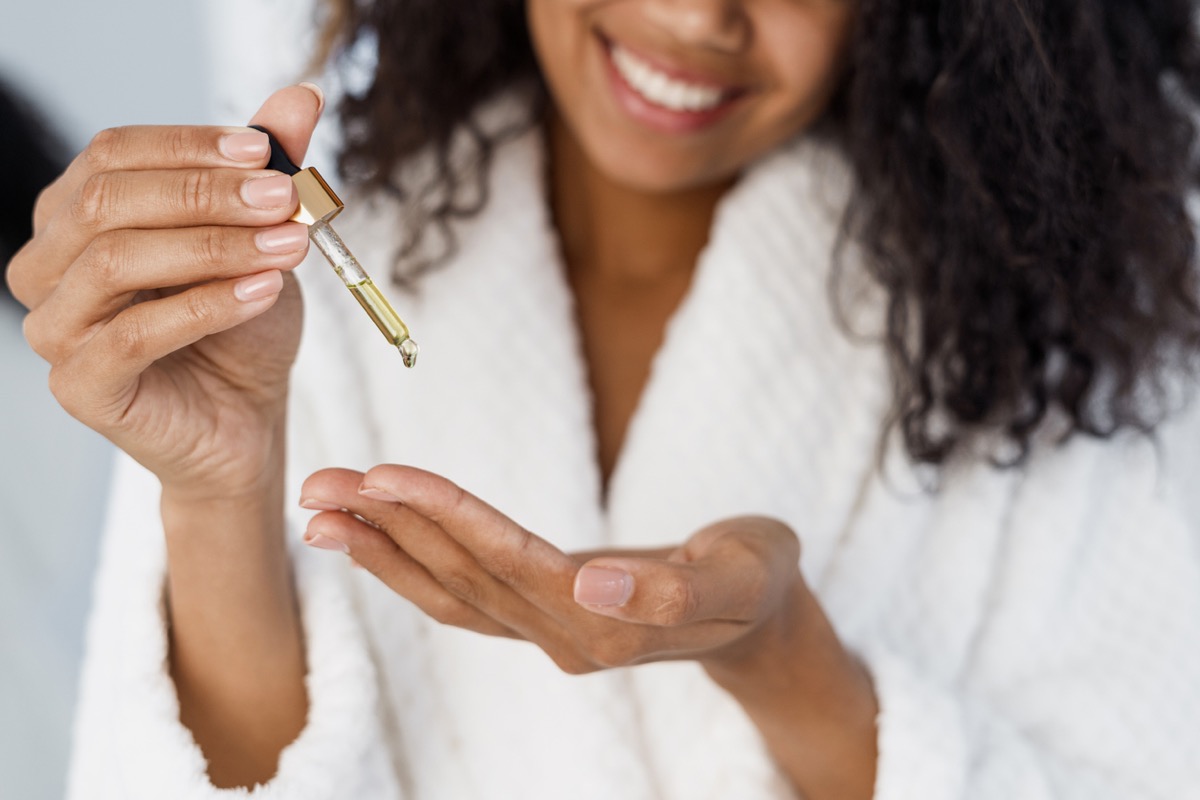
Fedotova says that laying the foundation for healthy skin can also help you combat rosacea symptoms before they occur.
"Regardless of individual requirements, I always advocate for the liberal use of antioxidants in skincare routines," she says. "These potent compounds offer a wide array of benefits, ranging from combating signs of aging to alleviating issues such as acne, hyperpigmentation, and rosacea. Operating at a cellular level, antioxidants play a pivotal role in rejuvenating the skin, fostering a holistic approach to anti-aging, healing, and revitalization."
Vitamin C is among the most popular choices for a topical antioxidant serum. "Naturally extracted vitamins further amplify the skin's natural resilience, ensuring a comprehensive and enduring restoration of the skin's natural vitality," Fedotova adds.
6
Eat antioxidant-rich foods.

In addition to applying your antioxidants topically, Fedotova recommends adding them to your diet.
"For an optimal antioxidant boost, turn to the vibrant spectrum of colorful fruits and vegetables, each brimming with potent sources of these invaluable compounds," she advises. "From the robust aronia berries to the succulent mango, and the enriching properties of rose hips, these natural wonders offer a diverse array of antioxidants that effectively nourish and fortify the skin."
RELATED: 7 Ways to Allergy-Proof Your Skin, According to Dermatologists.
7
Apply a cool compress.

Another way to soothe your skin if you have rosacea is to apply a cool compress, Temple recommends. This will help lower your inflammation levels and constrict blood vessels, thereby reducing redness and irritation.
For an added antioxidant boost, Cure says you can also try applying chilled green tea bags to the affected area.
8
Promote good gut health.
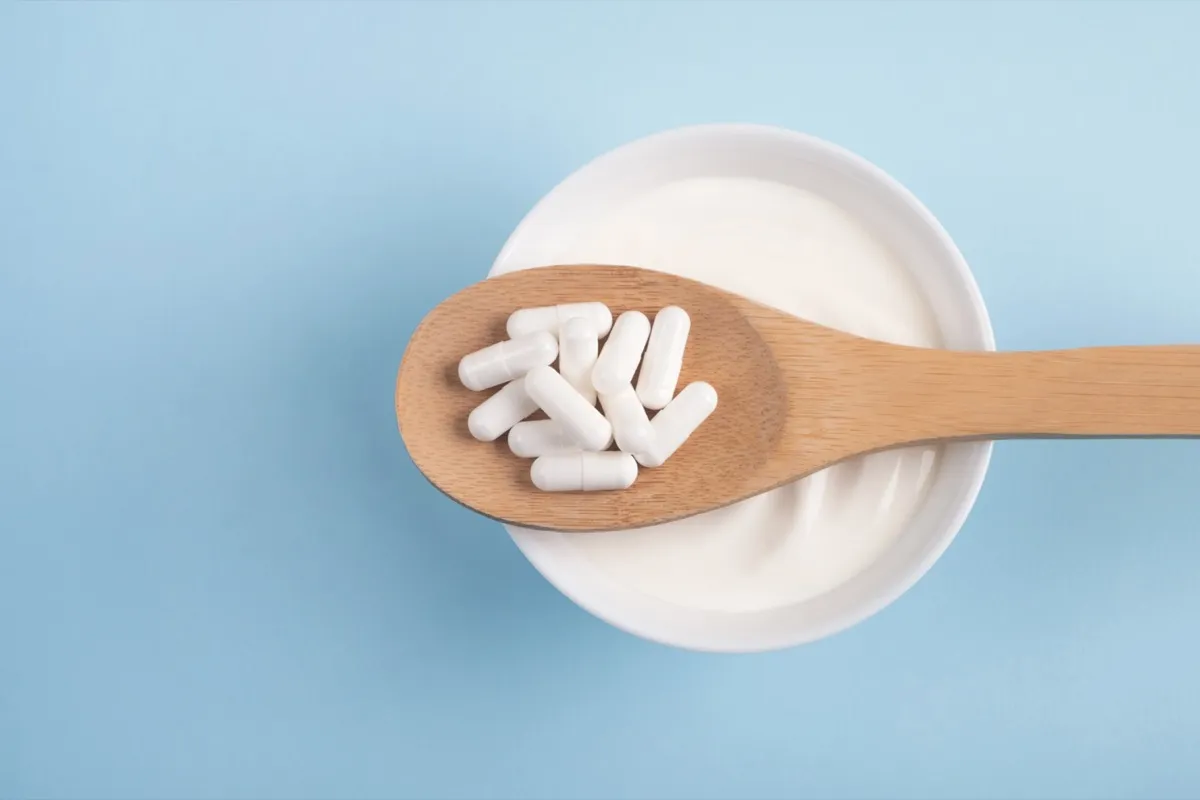
Cure says the next step in soothing and calming your skin is to work with your doctor to determine whether there are potential connections between rosacea and internal conditions, including those related to gut health.
"The gut-skin axis explains a bidirectional interaction between skin and gut microbiota in some inflammatory skin diseases such as atopic dermatitis, psoriasis, or rosacea," says a 2023 study in the journal Frontiers in Microbiology.
By promoting good gut health and balancing the gut microbiota, you may be able to calm your irritated skin. To that end, some medical professionals say that taking prebiotics and probiotics could help soothe rosacea symptoms.
RELATED: 20 Ways a Sunburn Harms Your Overall Health.
9
Manage your stress levels.
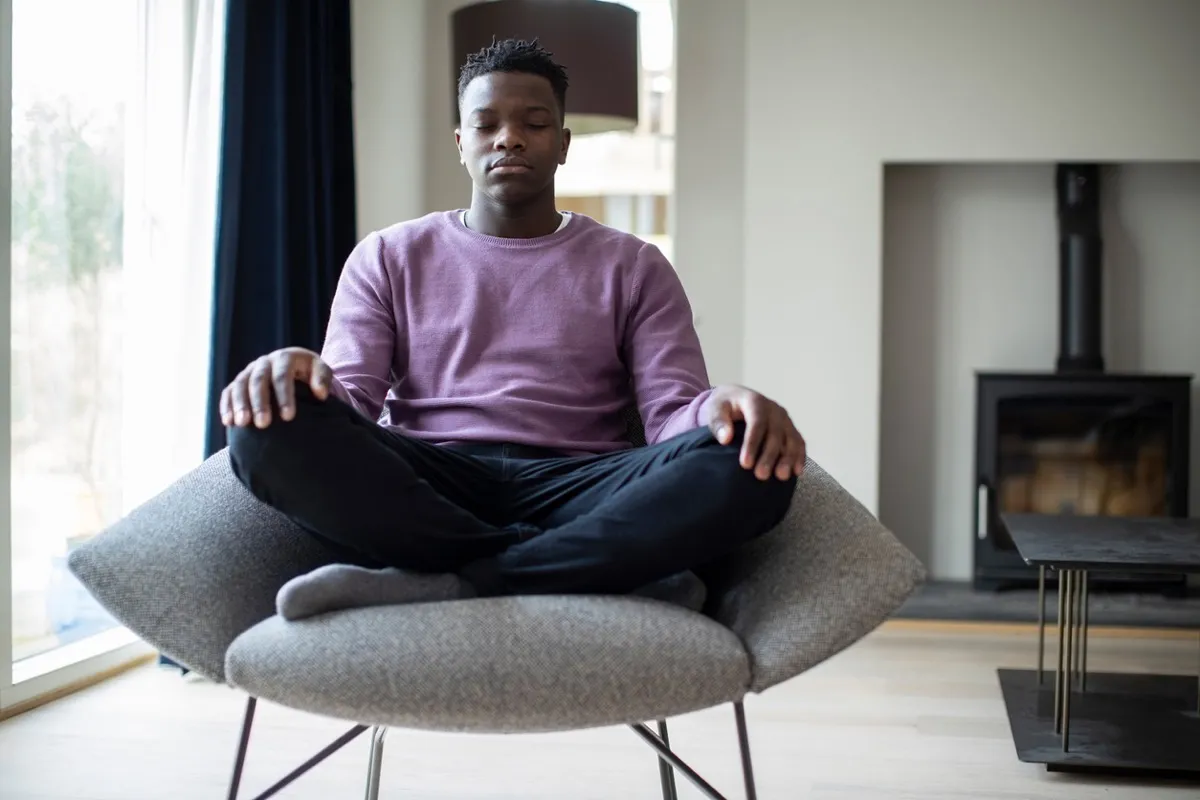
Many people also experience rosacea flare-ups during moments of heightened stress. In fact, according to the National Rosacea Society, stress is among the most common triggers for rosacea symptoms. After conducting a survey of 544 rosacea patients, they found that 62 percent of respondents experienced symptom flare-ups resulting from stress at least once per month. Eleven percent say it was a daily occurrence.
"Practice stress-reduction techniques like mindfulness meditation or yoga to minimize stress-induced flare-ups," suggests Cure.
10
Try professional treatments.
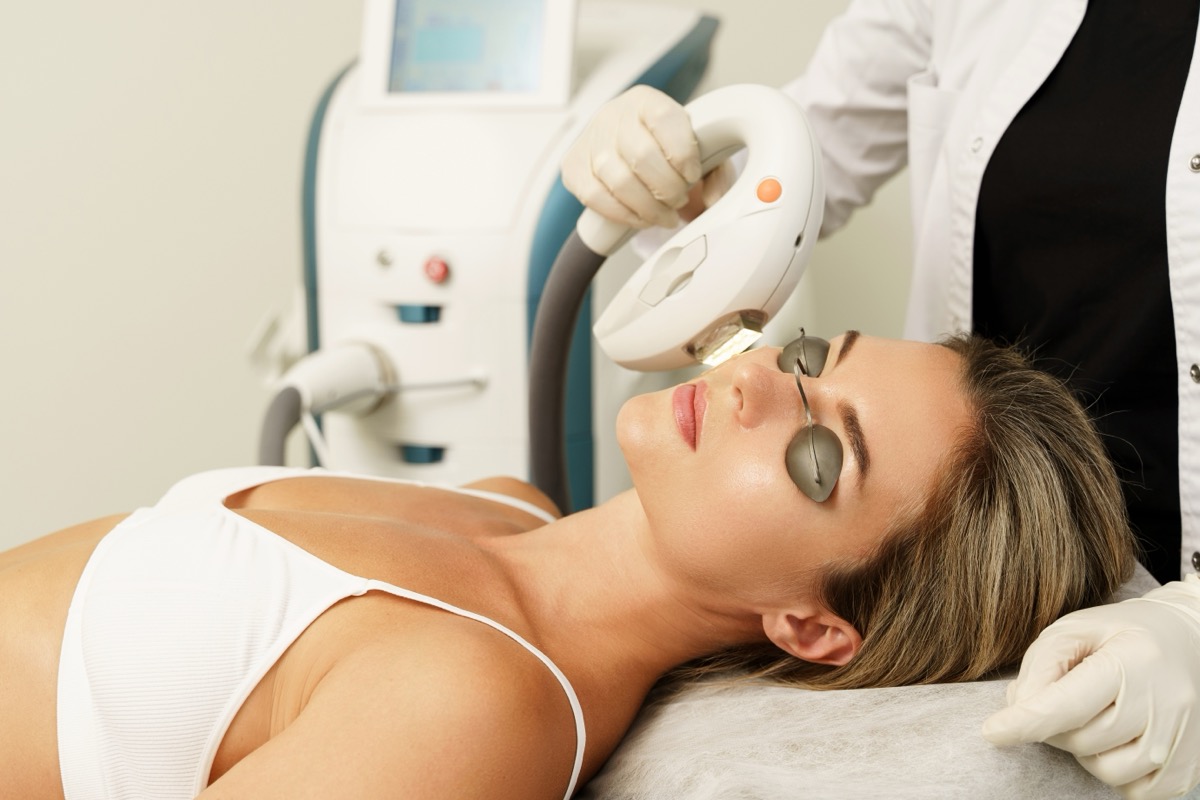
Many people who have rosacea will notice that they have visible veins on the cheeks or nose, adding to the overall look of redness and irritation. Laser treatments may help to reduce these particular rosacea symptoms, Charette says.
At his own practice, he offers a facial that uses a Laser Genesis machine to gently and safely heat the skin, stimulating collagen production and the development of new skin cells.
"Laser Genesis is non-invasive and non-ablative, meaning there's no recovery or downtime," the aesthetician tells Best Life. "The quick procedure can improve the skin's texture and tone and reduce the appearance of redness and the appearance of broken blood vessels. Facial veins laser treatments work by emitting heat, which causes blood vessels to constrict and improves skin redness and rosacea. The treatment is effective on all skin tones and types that want to improve the appearance of facial veins."
Charette adds that Intense Pulsed Light, more commonly known as IPL, is another great professional service to help soothe rosacea.
"This is a light-based treatment that focuses primarily on improving discoloration in the skin," he explains. "IPL is not technically a laser, although it is often grouped under the laser umbrella. Instead of using a wavelength of energy to improve the skin, an IPL laser facial uses a high-intensity light that breaks up pigment and improves the skin's texture."
If you've had a professional procedure, be sure to schedule regular follow-up appointments with a dermatologist or esthetician. They'll help you monitor your rosacea symptoms and develop customized treatment plans for moving forward, Cure says.
Best Life offers the most up-to-date information from top experts, new research, and health agencies, but our content is not meant to be a substitute for professional guidance. When it comes to the medication you're taking or any other health questions you have, always consult your healthcare provider directly.



